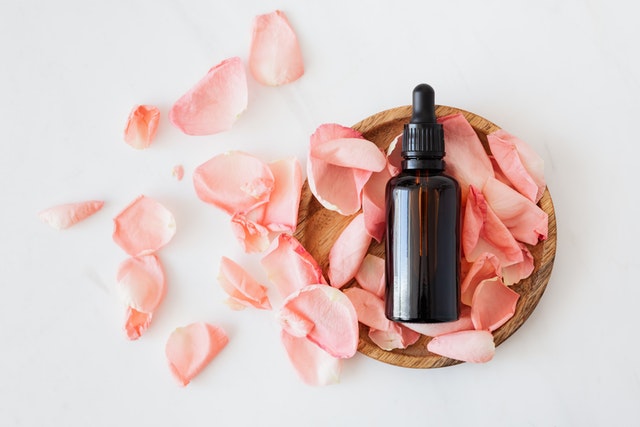
Skin is your largest organ, and it’s important to take good care of it. If you have sensitive skin, that means being extra careful to protect it from irritation. The good news is that you can take some simple steps to keep your skin healthy and looking its best. This blog post will discuss some effective ways to keep your sensitive skin protected from the sun and other environmental factors.
1. Wear Loose, Breathable Clothing
Look for linen and cotton clothes, as they are loose and breathable. This will help keep your skin cool and dry, reducing irritation and inflammation. In addition, it’s essential to avoid scratchy fabrics and tight-fitting clothing that can rub the skin and cause further irritation. Another great option is to wear a scarf or hat when you are outdoors. This will help to protect your skin from the sun, wind, and other elements.

2. Sunscreen is a Must
When it comes to sensitive skin, sunscreen is one of the most important products. It helps protect your skin from the sun’s harmful UV rays, which can cause irritation, inflammation, and even burns. Look for a sunscreen with an SPF of 30 or higher explicitly designed for sensitive skin. Second, look for a sunscreen that contains zinc oxide or titanium dioxide. These ingredients help reflect the sun’s rays, providing an extra layer of protection. Finally, choose a water-based sunscreen rather than an oil-based one. Water-based sunscreens are less likely to clog pores and cause breakouts.
3. Stay Hydrated
Drinking plenty of water is important for all skin types, but it’s especially crucial for those with sensitive skin. That’s because hydration helps to keep the skin barrier intact, which can prevent irritation and inflammation. Aim to drink eight glasses of water per day or more if you are sweating or spending time in a dry environment. You can also increase your water intake by eating foods high in water content, such as fruits and vegetables.
4. Moisturize Regularly
Moisturizing helps create a barrier between your skin and the outside world, keeping irritants and allergens out while trapping moisture in. That means less dryness, redness, and overall discomfort. Look for a moisturizer specifically designed for sensitive skin, and apply it at least once a day (preferably after showering or bathing). You’ll notice a difference in your skin’s appearance and feel with regular use.

5. Pay Attention to Your Diet
Diet plays a significant role in skin health, so it’s important to pay attention to what you’re eating to keep your skin looking its best. Eat plenty of antioxidant-rich foods. Blueberries, dark leafy greens, and tomatoes are all great choices. Antioxidants help to protect the skin from damage caused by free radicals.
Focus on healthy fats. Sensitive skin needs extra moisture, so it’s important to include healthy fats in your diet. Good sources of healthy fats include avocados, nuts, and fish. Salmon is an excellent source of omega-3 fatty acids known for their anti-inflammatory properties. Studies have shown that omega-3s can help to reduce redness and inflammation in the skin. You can also get omega-3s from flaxseeds or chia seeds if you don’t like fish.
6. Know Your Triggers
It’s important to know your triggers. Are you allergic to certain ingredients? Do you break out when you use products that are too fragrant? Or does your skin get red and inflamed when exposed to the sun? Once you know what causes your skin to react, you can take steps to avoid those triggers.
7. Avoid Hot Showers and Baths
The extreme temperature from hot showers and baths can strip away natural oils, leaving skin feeling dry and irritated. If you must take a hot shower or bath, limit your exposure to only a few minutes. This will help to minimize the risk of irritation. You can also add a few drops of soothing essential oil, such as lavender or chamomile, to the water. This will help to protect your sensitive skin further.

8. Avoid Harsh Chemicals and Other Irritants
With sensitive skin, it’s important to take extra care to avoid harsh chemicals and other potential irritants. Be choosy about your cleansing products. Many soaps and cleansers contain harsh chemicals that can strip away the natural oils that protect your skin. Look for products labeled “gentle” or “for sensitive skin.”
Avoid exfoliating scrubs. These products can contain harsh ingredients that can irritate sensitive skin. If you want to exfoliate, opt for a gentle chemical exfoliant instead. Look for products that contain glycolic acid or lactic acid.
Avoid exfoliating scrubs. Physical exfoliants like sugar scrubs can be far too harsh for sensitive skin, leading to redness, irritation, and even micro-tears in the skin. If you want to exfoliate, opt for a gentle chemical exfoliant instead.
Watch out for hidden irritants. Some fragrances, preservatives, and other ingredients can cause problems for people with sensitive skin, even if they don’t realize it. When choosing skin care products, always check the ingredient list to ensure it doesn’t include anything you know you’re sensitive to. By being careful about what you put on your skin, you can help keep your sensitive skin protected from irritants.
Conclusion
Sensitive skin can be a challenge to care for, but you can keep your skin looking and feeling its best with the proper precautions. By following these tips, you’ll be on your way to protecting your sensitive skin from irritation and inflammation.





Leave a reply